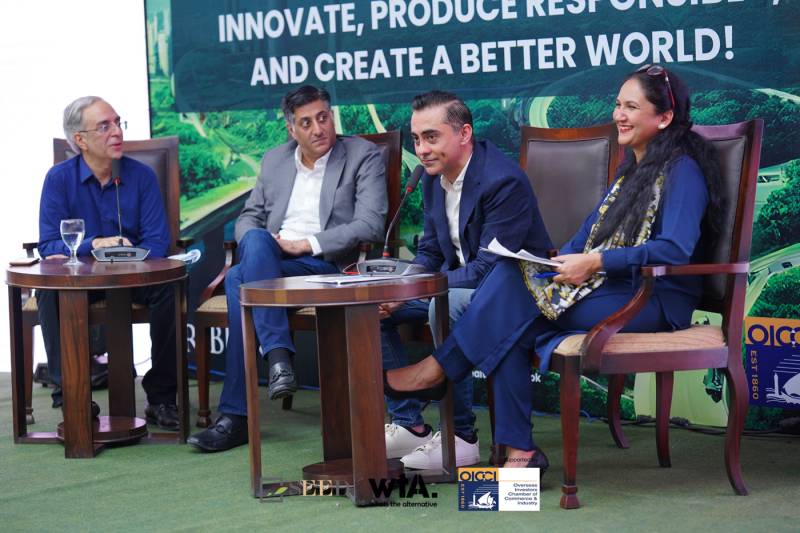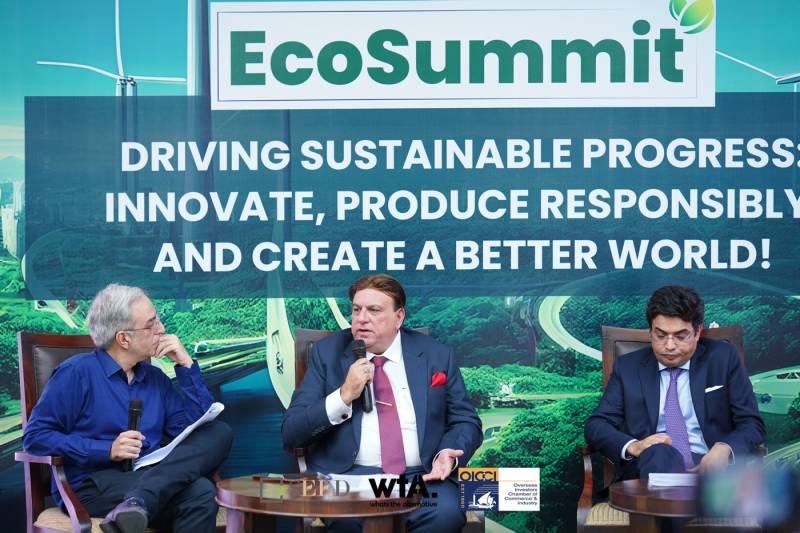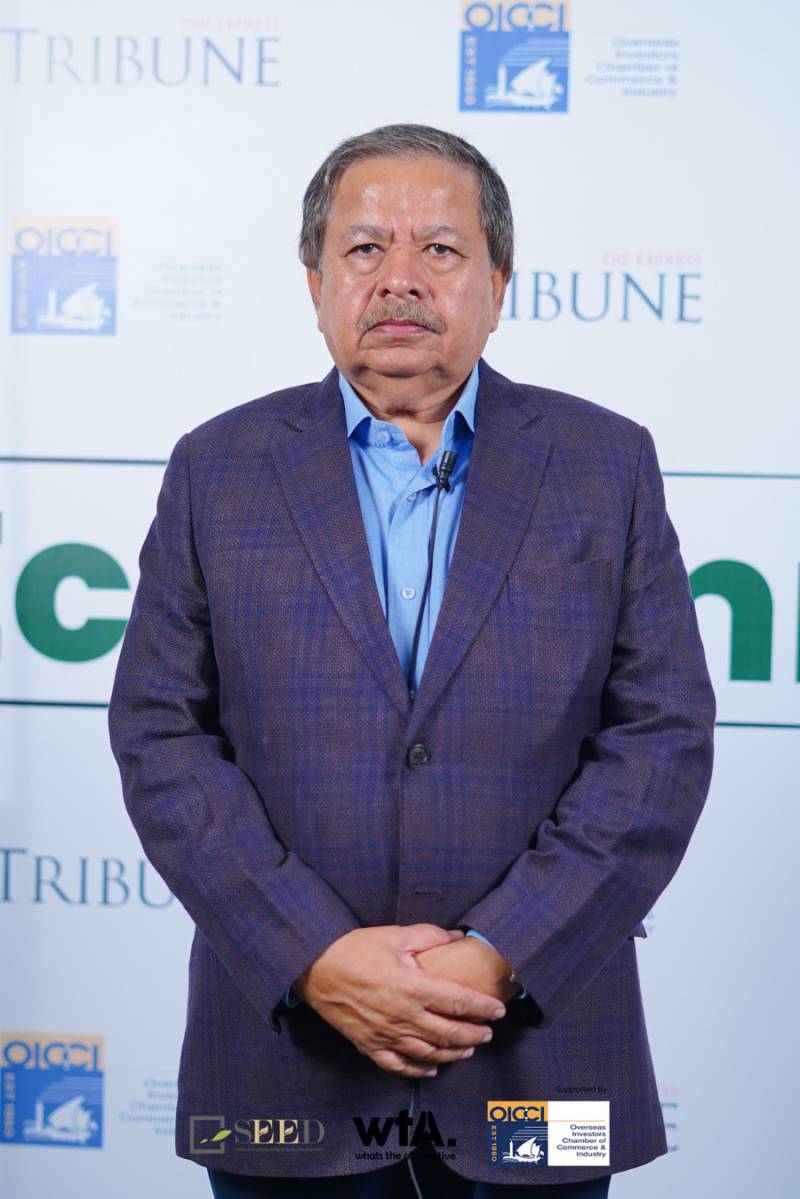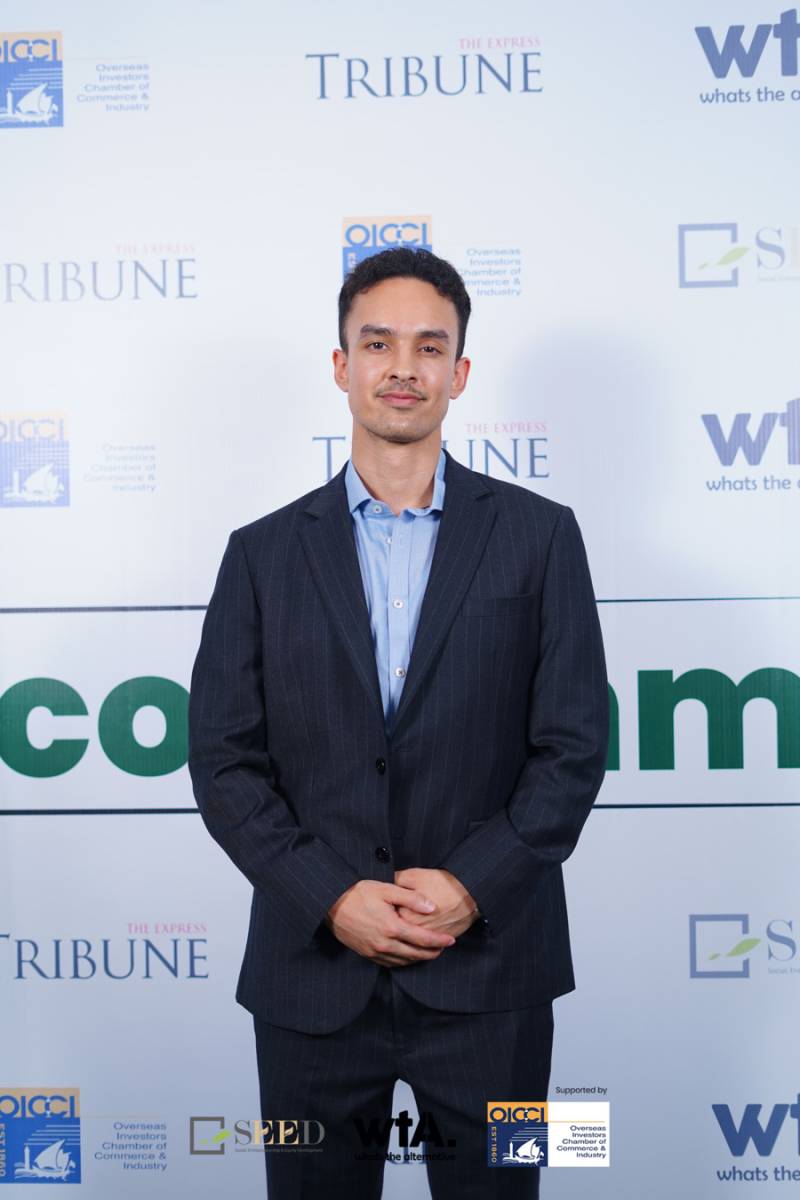Inspiring Change: SEED Ventures' EcoSummit Sparks Dialogue on Alternatives and Sustainable Choices

Amidst the global challenges of climate change, socioeconomic disparities, and environmental degradation, conventional approaches often prove inadequate. Recognizing the necessity for alternative solutions, SEED Ventures, a prominent sustainability and ecosystem development organization unveiled its groundbreaking platform, 'What's the Alternative,' at its inaugural event, the 'EcoSummit.' The OICC Chamber of Commerce building in Karachi set the stage for thought-provoking conversations led by industry leaders and corporate heads, igniting inspiration and prompting attendees to take meaningful action. The EcoSummit delved into a range of topics, including the importance of sustainability in today's world, the consequences of climate change, and individual and community-level alternatives for preserving the planet.

The event commenced with a compelling speech by Amir Paracha, CEO of Unilever Pakistan, who noted that climate change is no longer an abstract concept but a tangible reality affecting people's lives. Paracha emphasized the urgency of acknowledging and responding to this truth, stating, "Climate change is no longer just a topic for academic discussions. It has arrived, and we can see and feel its impact." He stressed that focusing solely on the negative consequences will yield no results; instead, a shift in mindset is imperative, encouraging people to explore alternative approaches. He further highlighted that the global impacts of climate change extend beyond borders, stressing that despite Pakistan's comparatively low carbon emissions, the country’s economy will face an 18-20% decline by 2050 due to environmental threats like greenhouse gas emissions. Hence, Mr.Paracha urged the significance of the corporate sector's adoption of sustainable practices in tackling the climate crisis.

Following Paracha's speech, a fireside chat moderated by seasoned journalist Zarrar Khuhro featured Khalid Mahmood, MD and CEO of Getz Pharma, who underscored the pivotal role of policymakers in driving sustainability. Mahmood emphasized the need for prompt policy implementation to effectively address environmental challenges, stating, "Sustainable solutions in Pakistan require strong policy implementation. We must all take responsibility for our individual actions contributing to the problem and develop a mindset that embraces less harmful alternatives." During the conference, Khalid Mahmood brought to light the critical hazards posed by air and water pollution, as well as the presence of harmful chemicals in contaminated water. He underscored the vital role played by forests and oceans in absorbing the carbon footprint, expressing deep concern over Pakistan's declining forest cover, a situation exacerbated by illegal deforestation, which stands in contrast to the global trend. Mahmood's poignant observations served as a stark reminder of the urgent need for sustainable practices and responsible environmental stewardship. His insights shed light on the unique challenges facing Pakistan and the collective responsibility of both individuals and the corporate sector in addressing the climate crisis. The call to action stressed the importance of reversing the damage done to the environment and fostering a more sustainable future for generations to come.

One of the primary objectives of the EcoSummit was to introduce 'What's the Alternative,' a platform poised to act as a catalyst for change. Shaista Ayesha, CEO of SEED Ventures, highlighted the significance of making sustainable practices accessible to all, with a specific focus on Pakistan. The platform revolves around three core pillars: environment, wellness, and lifestyle, encouraging individuals and organizations to engage and contribute to a more sustainable future.

Shaista's speech stood out, aptly described by Zarrar Khuhro as "equally inspiring and equally terrifying." She shed light on the multifaceted nature of socioeconomic and environmental challenges, emphasizing the need for alternative approaches to effectively address them. Citing climate resilience as an example, she challenged the traditional notion of solely relying on tree planting, asserting that it may no longer suffice. Instead, she advocated for considering fiscal and monetary policies that promote equitable wealth distribution, thereby enhancing climate resilience in vulnerable communities. Shaista also stressed the importance of marketing and collaboration in promoting sustainability efforts, recognizing that sharing and collaboration foster powerful partnerships and a deeper understanding of the ongoing sustainability initiatives. She emphasized the value of impact-driven approaches, investment in niche markets, and the adoption of sustainable practices in everyday choices. Shaista concluded by highlighting the urgency of finding alternatives and fostering innovative thinking to achieve the Sustainable Development Goals (SDGs) and create meaningful change. "If we continue on the same path and do what we have always done, by 2030 we will not be able to bring about any change. Food security will be worse than in 2005, over 500 million people will be pushed back into poverty, and it will take another 200 years to close the gender gap," voiced Shaista Ayesha.
EcoSummit also featured two insightful panel discussions. The first panel, titled "Industry Innovation and Infrastructure for a Sustainable Future," explored novel approaches to industry practices and infrastructure. Esteemed panelists, including experts Tahir Mirza from Hamdard Laboratories and Danish Iqbal from Metro Power Group and Gul Ahmed Energy Group, shared insights into sustainable industry practices, inspiring attendees to adopt innovative approaches within their respective fields.

Panel 2, "Responsible Consumption and Production," emphasized the importance of responsible consumption habits and sustainable production processes. Panelists Ziad Bashir from Gul Ahmed Textile Mills, Raza Pirbhai from KFC Pakistan, and Shaista Ayesha from SEED Ventures discussed the significance of responsible consumption and production in driving sustainability forward. Raza Pirbhai, CEO of KFC Pakistan, reaffirmed the company's commitment to sustainability, ensuring high-quality food production while prioritizing environmental stewardship.
Overall, the EcoSummit served as a catalyst for collaboration, knowledge sharing, and inspired action. Attendees departed equipped with valuable insights, practical solutions, and a renewed dedication to making sustainable choices in their personal and professional lives. The event showcased the unwavering commitment of SEED Ventures, OICCI, and industry leaders to drive sustainable impact in Pakistan, underscoring the belief in the power of collective efforts to spark inspired action.H Dr
